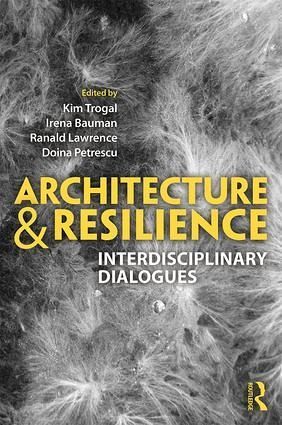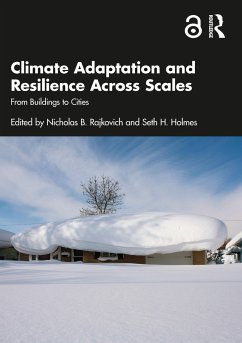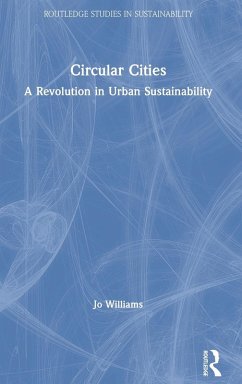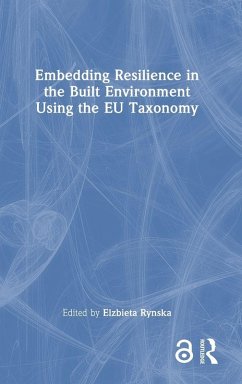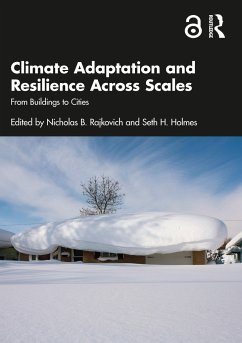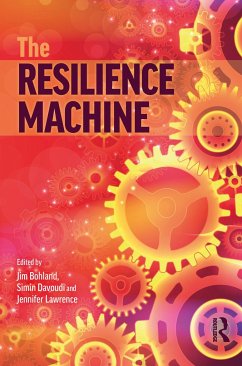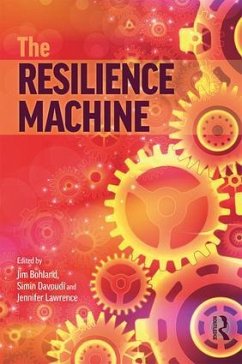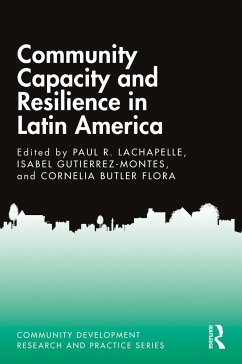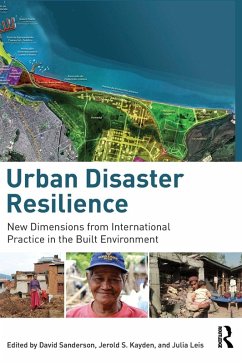Gebundenes Buch
Architecture and Resilience
Interdisciplinary Dialogues
Herausgeber: Trogal, Kim; Lawrence, Ranald; Bauman, Irena
Versandkostenfrei!
Versandfertig in 1-2 Wochen
Weitere Ausgaben:

PAYBACK Punkte
84 °P sammeln!




The first book to focus on the social, cultural and political dimensions of resilience, this introduction combines theory and practice to demonstrate the transformative role architecture can play in building social and ecological resilience.
Kim Trogal is a lecturer at the Canterbury School of Architecture, University of the Creative Arts. She completed her architectural studies at the University of Sheffield, including a PhD in Architecture (2012) for which she was awarded the RIBA LKE Ozolins Studentship. Kim was research assistant at the Sheffield School of Architecture (2012-2015), exploring issues of local social and ecological resilience, and Postdoctoral Researcher at Central Saint Martins, University of the Arts London (2014-2016). She is co-editor with Doina Petrescu of The Social (Re)Production of Architecture (2017) and co-editor with Valeria Graziano of a special issue of the journal Ephemera: Theory & Politics in Organisation, called 'Repair Matters' (2019). Irena Bauman is a practising architect and a founding director of Bauman Lyons Architects. She is an emeritus Professor of Sustainable Urbanism at Sheffield University School of Architecture and Director of MassBespoke R@D. Her practice and research are concerned with how architecture and architectural thinking can facilitate local communities to mitigate, adapt and become more resilient to the uncertainties that lie ahead. Her practice experiments with behaviour change needed to achieve greater social justice and a more sustainable society. She is the author of 'How to be a Happy Architect' in which she challenges the architectural establishment and of 'Retrofitting Neighborhoods - Designing for Resilience' a study of international case studies of neighborhood scale project that are paving the way towards transformative change. Ranald Lawrence is a lecturer in environmental design at Sheffield School of Architecture. His background in architectural practice informs his teaching and research, focusing on environmental performance, energy consumption and user behaviour in the context of climate change. He has worked for several award-winning architectural practices, and taught and published on the history of environmental design, adaptive comfort theory and the implications of the use of technology in buildings. Prior to joining the University of Sheffield, Ranald lectured in the Department of Architecture at Cambridge while completing his PhD on environmental design strategies in late nineteenth- and early twentieth-century buildings. His current research investigates how architects contribute to sustainable adaptation in different cultures and climates, including the Middle East, Asia and Africa. Doina Petrescu is Professor of Architecture and Design Activism at the University of Sheffield and co-founder of atelier d'architecture autogérée (aaa). Her cross-disciplinary research addresses outstanding questions in architecture and urban planning, focusing on issues of civic participation and gender and the relations between coproduction, urban commons and resilience. Her main publications include The Social (Re)Production of Architecture (2017), Learn to Act (2017), Altering Practices (2007) and Architecture and Participation (2005). She is currently working on an authored book: Architecture Otherhow: Questioning Contemporary Practice (forthcoming 2019).
Produktdetails
- Verlag: Routledge
- Seitenzahl: 302
- Erscheinungstermin: 11. Dezember 2018
- Englisch
- Abmessung: 240mm x 161mm x 21mm
- Gewicht: 619g
- ISBN-13: 9781138065802
- ISBN-10: 1138065803
- Artikelnr.: 56875491
Herstellerkennzeichnung
Libri GmbH
Europaallee 1
36244 Bad Hersfeld
gpsr@libri.de
Für dieses Produkt wurde noch keine Bewertung abgegeben. Wir würden uns sehr freuen, wenn du die erste Bewertung schreibst!
Eine Bewertung schreiben
Eine Bewertung schreiben
Andere Kunden interessierten sich für



